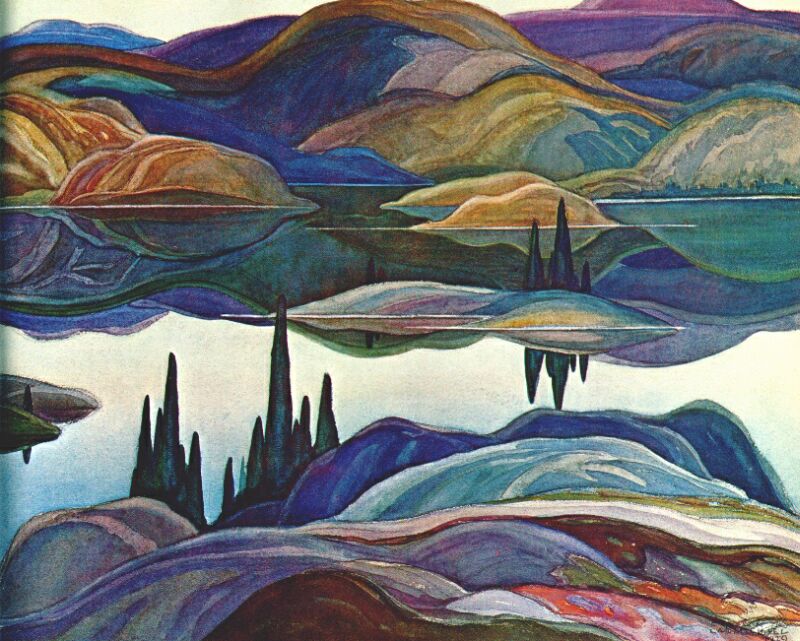I wasn't sure what I should expect from the guest lecture on Tuesday, but it turned out to be a really interesting and unique look at landscape art, and representations of the land. I found it to be very informative, and well-rounded, and it was cool to get a perspective that was a bit different than a purely art-history-oriented approach.
Something I thought was particularly interesting was the ways in which artistic representations of the land were said to demonstrate in some way the relationship that the artist or the society at the time felt they had to the land. This reminded me instantly of the diverse ways that nature has been depicted in literature. For example, the Romantics felt that the divine was eminent in the beauty nature, and that through communing with nature one could become more in touch with God; in their poetry elevated diction is used in lengthy descriptions of nature scenes, which are depicted as awe-fully beautiful. However, the Canadian Modernists, when they included nature in their writing, usually depicted it as wild, harsh and unforgiving--sometimes even cruel, and not something to be communed with at all.
Anyway, it was very interesting to see such a variety of representations of landscape, and the think about humankind's relationship to the land as one that shifts in that way.
Something I thought was particularly interesting was the ways in which artistic representations of the land were said to demonstrate in some way the relationship that the artist or the society at the time felt they had to the land. This reminded me instantly of the diverse ways that nature has been depicted in literature. For example, the Romantics felt that the divine was eminent in the beauty nature, and that through communing with nature one could become more in touch with God; in their poetry elevated diction is used in lengthy descriptions of nature scenes, which are depicted as awe-fully beautiful. However, the Canadian Modernists, when they included nature in their writing, usually depicted it as wild, harsh and unforgiving--sometimes even cruel, and not something to be communed with at all.
Anyway, it was very interesting to see such a variety of representations of landscape, and the think about humankind's relationship to the land as one that shifts in that way.

No comments:
Post a Comment